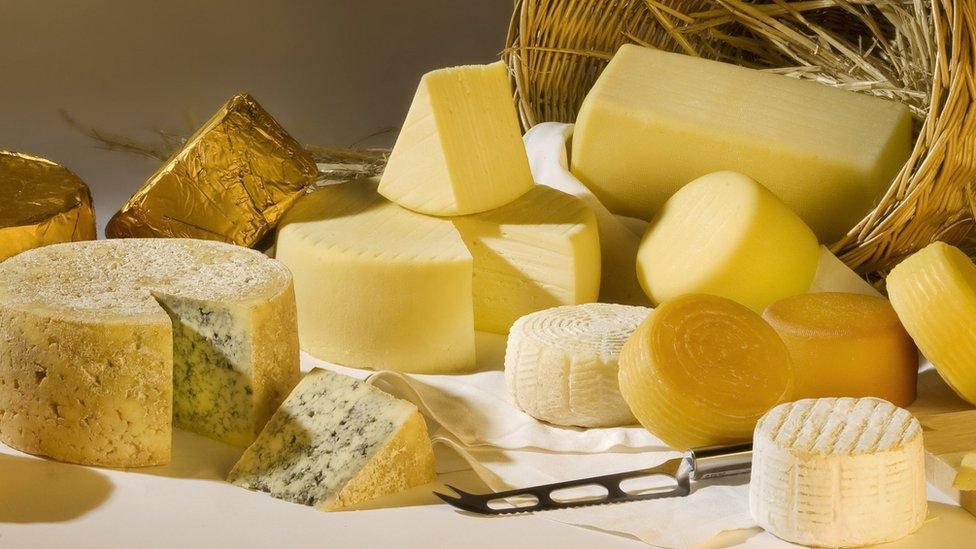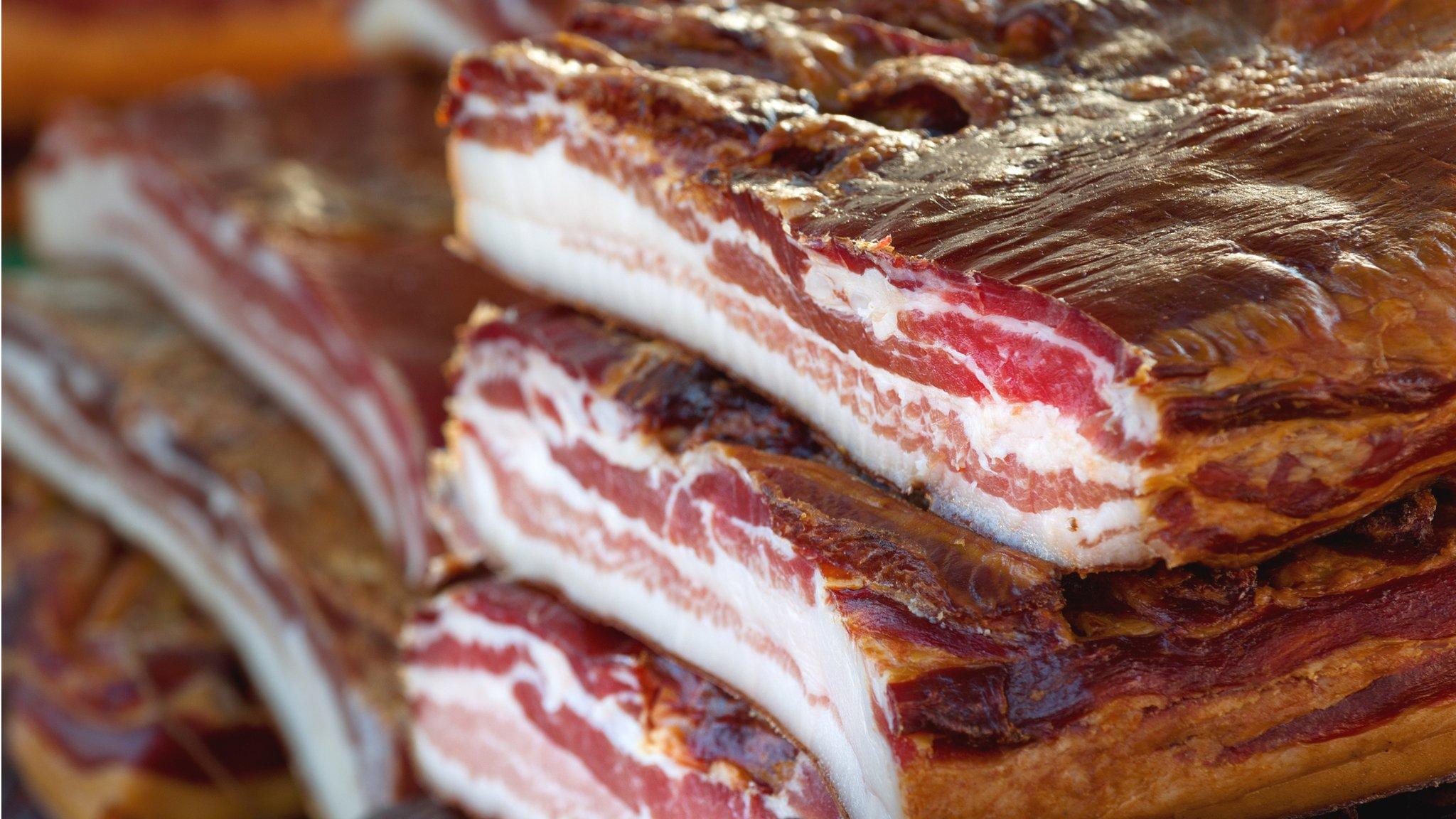Public Health England: Advice to eat more fat 'irresponsible'
- Published
- comments

Full-fat dairy may be protective, the National Obesity Forum said
Advice to eat more fat is irresponsible and potentially deadly, Public Health England's chief nutritionist has said.
Dr Alison Tedstone was responding to a report by the National Obesity Forum, which suggests eating fat could help cut obesity and type 2 diabetes.
The charity said promoting low-fat food had had "disastrous health consequences" and should be reversed.
Other experts have also criticised the report saying it cherry-picked and misquoted evidence.
Low-fat or high-fat - does it matter?
Is butter back and is sat fat good?
Dr Aseem Malhotra, a senior adviser to the National Obesity Forum, said: "The change in dietary advice to promote low fat foods is perhaps the biggest mistake in modern medical history.
"We must urgently change the message to the public to reverse obesity and type 2 diabetes. Eat fat to get slim, don't fear fat, fat is your friend."
Risk
But the report has been criticised for not going though scientific peer review.
Dr Tedstone responded to the publication by saying: "In the face of all the evidence, calling for people to eat more fat, cut out carbs and ignore calories is irresponsible."
She said thousands of scientific studies were considered as part of the official guidance adopted throughout the UK, whereas the National Obesity Forum quoted just 43 studies, some of which were comment pieces.
She added: "It's a risk to the nation's health when potentially influential voices suggest people should eat a high fat diet, especially saturated fat. Too much saturated fat in the diet increases the risk of raised cholesterol, a route to heart disease and possible death."
The Royal Society for Public Health described the report a "muddled manifesto of sweeping statements, generalisations and speculation".
Has fat been unnecessarily vilified?
The report argues:
Eating fat does not make you fat
Saturated fat does not cause heart disease and full-fat dairy is probably protective
Processed foods labelled "low fat", "lite", "low cholesterol" or "proven to lower cholesterol" should be avoided
Starchy and refined carbohydrates should be limited to prevent and reverse type 2 diabetes
Optimum sugar consumption for health is zero
Industrial vegetable oils should be avoided
People should stop counting calories
You cannot outrun a bad diet
Snacking will make you fat
Evidence-based nutrition should be incorporated into education curricula for all healthcare professionals
The report also said humans had evolved to be a "healthy well-nourished species with a long life expectancy", but this had gone wrong in the past 30 years.
It said there was too much focus on calories when "it is highly irrelevant how many calories a portion of food on a plate contains" and it was "untrue" that excessive calories caused obesity.
Naveed Sattar, a professor of metabolic medicine at the University of Glasgow, said the report was "good, bad and ugly".
He backed calls to cut snacking, but said eating more fat as a cure for obesity and type 2 diabetes was "not warranted" by the evidence and would have "adverse" consequences.
He said the authors had been selective in their choice of evidence and had ignored "an abundant literature which goes against their conclusions".
The government's obesity adviser Prof Susan Jebb said the "current dietary advice is based on the best evidence we have".
She said the debate should be widened from a focus on fat. "We're eating too many calories - if we want to tackle obesity people do need to eat fewer calories [and] that means less fat and less sugar."
Is butter back?
The Faculty of Public Health's Prof Simon Capewell said the focus on nutritional guidelines was "a huge distraction from the real causes of obesity" such as advertising cheap junk food to children.
And he said he was worried that the National Obesity Forum report "is not peer reviewed and does not indicate who wrote it or how it was funded".
The National Obesity Forum says it is an independent organisation that receives professional and financial support, external from the food industry, pharmaceutical companies and medical bodies.
Dr Nita Forouhi, says the review contains some important omissions and some references had been misrepresented such as the recommendations around vegetable oils.
The scientist, at the MRC epidemiology unit at the University of Cambridge, told the BBC: "This is a highly selective review, it is not a systematic appraisal of the evidence and in places opinions are expressed that are not backed up by a body of evidence."
She praised the call to lower refined carbohydrates, but said the overall message to cut carbs ignored the issue of quality as "we do need wholegrain carbs and fibre in out diet".
Prof Tom Sanders from King's College London said: "It is not helpful to slag off the sensible dietary advice.
"The harsh criticism of current dietary guidelines meted out in this report is not justified as few people adhere to these guidelines anyway.
"There is good evidence that those that do follow the guidelines have less weight gain and better health outcomes."
- Published5 January 2016

- Published6 January 2016

- Published23 May 2016
